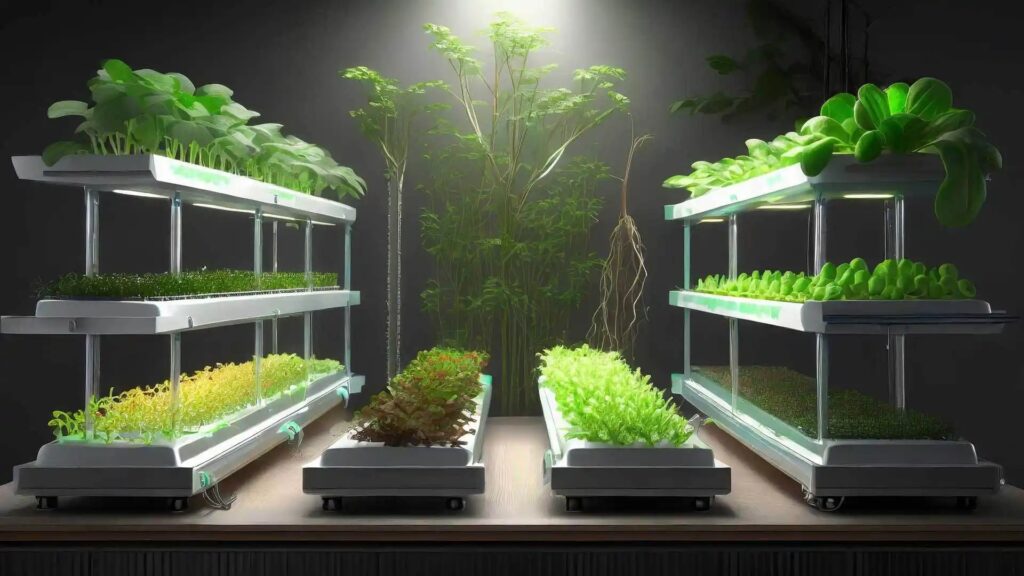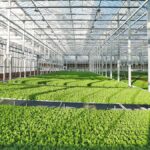10 Hydroponic System Benefits: Revolutionizing Modern Agriculture
In recent years, hydroponic systems have gained significant traction in the realm of modern agriculture. These innovative setups offer a plethora of benefits that are reshaping the way we grow crops. From maximizing space utilization to conserving water, hydroponic systems are paving the way for sustainable and efficient farming practices. Let’s delve into the detailed advantages of hydroponic systems and explore how they are revolutionizing the agricultural landscape.
1. Increased Crop Yield
Hydroponic systems provide an ideal environment for plant growth, ensuring optimal nutrient uptake and eliminating competition for resources. As a result, hydroponically grown crops often yield significantly higher harvests compared to traditional soil-based methods.
2. Water Conservation
Unlike conventional farming, which requires copious amounts of water to sustain crops, hydroponic systems use water more efficiently. By recirculating nutrient solutions and minimizing water wastage, hydroponics can reduce water consumption by up to 90%, making it a sustainable choice for water-scarce regions.
3. Space Efficiency
Hydroponic systems are particularly advantageous in urban areas or locations with limited arable land. These systems can be vertically stacked or arranged in compact configurations, allowing farmers to maximize space utilization and cultivate crops in unconventional environments such as rooftops or indoor facilities.
Experts of a Hydroponic Shop London recommend hydroponic systems for urban areas or locations with limited arable land due to their space-efficient nature. These systems can be vertically stacked or arranged in compact configurations, enabling farmers to cultivate crops in unconventional environments such as rooftops or indoor facilities, effectively utilizing available space.
4. Reduced Environmental Impact
With controlled nutrient delivery and pest management, hydroponic systems minimize the need for harmful pesticides and fertilizers, thus reducing soil and water pollution. Additionally, hydroponics eliminate soil erosion and nutrient runoff, preserving the integrity of surrounding ecosystems.
5. Faster Growth Rates
Hydroponically grown plants have access to a consistent supply of nutrients and oxygen, facilitating accelerated growth rates compared to traditional soil-based cultivation. This rapid growth enables farmers to achieve quicker crop turnover and meet market demands more efficiently.
6. Year-Round Production
By providing optimal growing conditions regardless of external factors such as weather or season, hydroponic systems enable year-round crop production. This continuous harvest cycle enhances farmers’ profitability and ensures a consistent food supply for consumers throughout the year.
7. Customized Nutrient Management
Hydroponic systems allow precise control over nutrient composition and delivery, enabling farmers to tailor nutrient solutions to the specific needs of each crop. This customization optimizes plant growth and nutrient absorption, resulting in healthier and more productive plants.
8. Pest and Disease Control
Hydroponic setups minimize the risk of pest infestations and plant diseases commonly associated with soil-based agriculture. Without soil as a medium for pathogens to thrive, hydroponic crops are less susceptible to fungal infections, root rot, and pest damage, reducing the need for chemical interventions.
9. Improved Nutrient Absorption
In hydroponic systems, plants have direct access to essential nutrients dissolved in the nutrient solution, bypassing the need for nutrient uptake through soil. This direct absorption mechanism ensures efficient nutrient utilization by plants, leading to healthier growth and higher nutrient content in harvested produce.
10. Enhanced Sustainability
By integrating renewable energy sources, such as solar power, and utilizing recycled materials for system components, hydroponic farming can further enhance its sustainability credentials. These eco-friendly practices contribute to reducing the carbon footprint of agricultural operations and promoting a more environmentally conscious approach to food production.
Conclusion
In conclusion, hydroponic systems offer a multitude of benefits that address key challenges facing traditional agriculture, from resource scarcity to environmental degradation. By embracing these innovative techniques, farmers can achieve higher yields, conserve water, and cultivate crops sustainably. As the world continues to grapple with food security and environmental concerns, hydroponic farming emerges as a promising solution for the future of agriculture.





